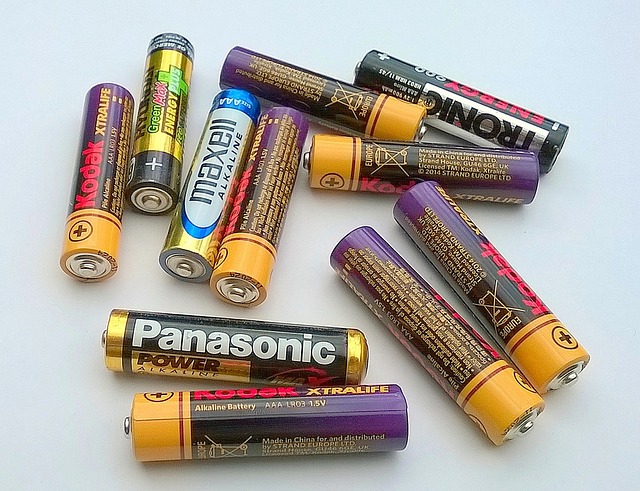Do You Use AAA Lithium-Ion Batteries?
Jun 29, 2019 Pageview:1310
The lithium triple A or AAA battery is actually a standard size of the battery that is referred to as dry cell and regularly used in electronic devices that are high-drained and portable. It is a zinc-carbon battery and designated by IEC as an R03.
For ASIC, C18.1 it is taken as 24, and by the old JIS standard, it is referred to as UM 4 while for all other battery manufacturers and the national standard designations, lithium AAA varies, and this depends on the chemistry of the battery cell.
The vital thing to note about the lithium AAA battery is that it is a distinct cell, and it measures up to 10.5mm, which is 0.41 inches in diameter and 44.5mmand is 1.75inches in length.
Lithium AAA batteries include the positive terminal button which is actually a minimum of 0.8mm that is 0.031 inches. Its positive terminal basically has an increased diameter of 3.8mm, which is about 0.15inches.
Its flat negative terminal practically has an increased diameter of 4.3mm that is0.17inches. The primary lithium AAA battery actually weighs roughly 7.6g, which is 0.27oz.
AAA Lithium-Ion Batteries Usage Guidelines
The triple-A lithium batteries are majorly utilized in the regular electronic devices that are small like:
· TV remote controls
· Digital cameras
· MP3 players, etc
However, devices that demand exact same voltage but have a current draw that is high are frequently structured to utilize bigger batteries like the double-A lithium battery.
These batteries have as much capacity and even three times the total capacity of triple-A batteries.
As a result of the increasing miniaturization and effectiveness of the electronics of today, most devices that have been structured for double A batteries like cordless computer mice, remote controls and keyboards are being displaced and efficiently replaced by the models that approve of triple-A lithium battery cells.
Back in 2007, AAA battery cells accounted for about twenty-four percent of alkaline major battery sales in the United States. Also, in Japan, twenty-eight percent of major alkaline batteries that were sold were actually AAA cells, and this occurred in 2011.
Furthermore, in Switzerland, AAA battery cells totaled about thirty percent of the major battery sales n 2008 and about thirty-two percent of minor battery sales.
AAA lithium batteries Pros And Cons
Some of the advantages of lithium AAA batteries include the fact that they work very well in high drain electronics. The lithium AAA batteries are also an incredible choice if you have devices or gadgets that need to be operated in low temperatures.
The batteries have gone on to be approved for reduced temperatures when compared to all other kinds of batteries. There are things such as the voltage as well as the flow of the current that is highly known to be at usable levels.
Exactly like the popular alkaline batteries, they have a much larger shelf life, and they are perfect for devices such as smoke detectors wherein replacing the batteries can frequently be a daunting task.
Other advantages of this battery cell include the fact that:
· They have an increased energy density plus the prospect for much more higher capacities
· The self-discharge is low, and it is less than half of NiCD and NiMH
· It has low maintenance as no periodic charge is desired and there is no memory
As for its disadvantages, the AAA Lithium batteries are basically much more expensive when they are compared with some other types of batteries. The ones that come in sizes like the double AA batteries are not rechargeable.
Another issue with this AAA battery is that its high voltages have the potential of frying out the electronic that it might be charging. Similar to alkaline batteries, they are also really hard to recycle.
While there are no recorded gains in its energy density, its durability is also inferior to the toughness of 18650 cell batteries.
Some other disadvantages include:
· It demands protection circuit as the protection circuit limits both circuit and voltage. The battery is only safe if it is not provoked
· Even if it is not in use, it is subject to issues of aging. The aging effect can only be decreased if it is kept in a cool place of about forty percent state of charge.
· It is always subject to transportation regulations. If large quantities are being shipped, it is subject to swift regulatory management. However, this regulation does not apply to private carry-on batteries
· It is very costly to manufacture, and it is about forty percent higher n its cost when compared to NiCD.
AAA lithium-ion batteries Application
The most intriguing factor that affects the life of lithium AAA batteries is the type and quality of the battery, its everyday application, and the volume or frequency of utilization.
Environmental factors like the humidity and temperature also have an effect on the battery life of triple-A batteries. The rechargeable triple A battery cells also have a longer life span than the disposable ones.
Making use of a battery outside of a room temperature that is standard or in increased humidity will reduce the lifespan of any type to some degree. But, in low temperatures, the lithium AAA batteries have the longest lifespan.
Lithium AAA batteries that are in outdoor temperature can actually last for the whole winter. However, a standard battery may actually not last the whole night in freezing weather.
Every of these battery types contain hazardous materials, and this means they should never be opened or even recycled once they die.
For its application, the AAA battery life simply depends on how it is used. While a digital clock will function for roughly six months with a standard battery, it will last a year with alkaline or rechargeable batteries.
However, for lithium batteries, the digital clock will last for about two to three years. For flashlight, it works for some hours with a standard battery and twice as long when with alkaline batteries.
With lithium batteries, it will last four times more.
To Sum It Up
Lithium AAA batteries can last far longer than most batteries available today. Well, now that you know about it, you can decide if you want to use it or not.
- Prev Article: Are Lithium Batteries Dangerous?
- Next Article: Do You Know What Lithium Glass Battery Is?
Leave Message
Hottest Categories
-
Hottest Industry News
-
Latest Industry News













